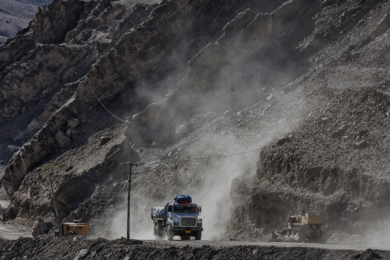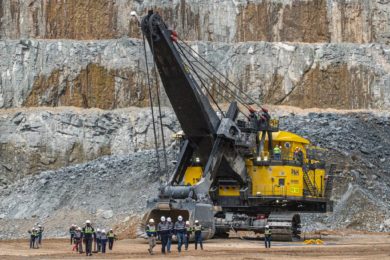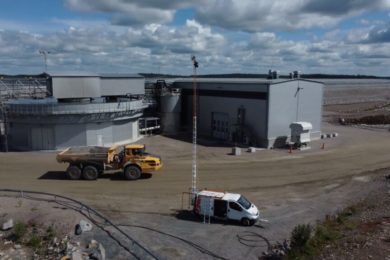In the second edition of its Mining Newsletter for 2017, Warren Beech, Global Head, Mining Subsector, at Johannesburg law firm Hogan Lovells argues that “despite concerns regarding regulatory and policy uncertainty across Africa, (as demonstrated by the implementation of radical new laws in Tanzania, and the publication of the third version of the Mining Charter in South Africa), perceptions surrounding corruption and nepotism, and inadequate infrastructure (water, roads, electricity and ports), there are a number of current and potential investors who hold a positive view of investment in Africa, including in the natural resources sector.”
These positive views “generally have their basis in Africa’s potential as a market and its source of mining and natural resources. These positive views often acknowledge the improvement of investability of many African countries for various reasons including mature banking, finance and legal institutions, investment-friendly policies and regulatory frameworks, and national development plans which demonstrate governmental support for sustainable infrastructure and development.”
“Of course these positive views do not mean that there are no concerns regarding investment in the African mining and natural resources sector – to the contrary, many of the positive views acknowledge the primary challenges of regulatory and policy uncertainty, corruption and nepotism, inadequate infrastructure, political instability, the high costs of production (which now includes pricing the risk associated with regulatory and policy uncertainty), and community and other stakeholder activism, which results in the requirement of one of the most significant “licences” namely the social licence to mine.”
“Those investors that are still active in Africa, or want to become active in Africa, seem to be adopting a more realistic view in relation to the potential returns, on the one hand, and the current realities of doing business in Africa, on the other. This equation still seems to be in favour of investment i.e. while super-cycle returns appear to be a thing of the past, there are still good returns to be made provided that investors and mining companies manage the expectations of the investment community, to realistic levels, and acknowledge the significant challenges facing the mining and natural resources sector in Africa, whilst embracing the opportunities that Africa has to offer.”
He argues that to effectively and efficiently embrace these opportunities, there are certain non-negotiable, key factors that need to be managed. Some of these key factors are often overlooked in circumstances where they should not be overlooked, because they are or can be primary disruptors. These key factors include understanding the current and predicted political landscape in the relevant country; understanding the geographical location of the prospecting and mining sites (with particular emphasis on isolation); acknowledging that infrastructure development has both a political and commercial imperative i.e. open source and co-operative arrangements will be required for a successful infrastructure development project; acknowledgement that a mine, once established, often needs to step into the shoes of government in relation to service delivery (roads, electricity, ablutions, etc.); acknowledging the importance of key stakeholders such as the communities; understanding the criticality of obtaining the “social licence to mine”; and acknowledging the importance of a co-operative approach and development of a sound relationship with the regulators responsible for the licencing of prospecting and mining operations.
“A holistic, regional approach and strategy contributes to the successful development of mining projects. The African mining and natural resources sector has contributed, significantly, to innovation which has been exported to the rest of the world. There are two potential threats to Africa’s role in this regard. Firstly, if the African mining and natural resources sector does not fully embrace the fourth industrial revolution, more commonly referred to as ‘Industry 4.0’, it may be left behind. Secondly, Africa’s relatively isolated historical position has forced self-reliance, and while globalisation is generally viewed in a positive light, there is a concern that globalisation is creating an automatic ‘culture of no’ because of the structures, restraints and thinking that often comes with globalisation, and which cuts across or could cut across Africa’s ‘can do’ approach to things.”










